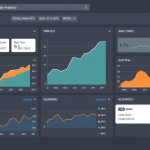Remember the last time you poured hours into creating content, only to hear crickets? That sinking feeling when your digital efforts don’t translate to real results? You’re not alone. In today’s crowded online space, standing out requires more than luck—it demands actionable strategies rooted in data and purpose.
Modern businesses thrive when they treat their digital presence like a living ecosystem. Tools like Similarweb and SE Ranking now decode user behavior through real-time data, analyzing patterns from millions of sources. This isn’t just about counting clicks—it’s about understanding why people engage and how to keep them coming back.
Click for details : https://go.sytixo.com/3gBqAg
Success starts with blending organic search tactics with smart content creation. Imagine attracting visitors who genuinely care about your offerings. Platforms today reveal competitor strengths, untapped niches, and even how users navigate your pages. These insights turn guesswork into measurable growth.
The right approach balances quality and quantity. A handful of engaged users often drive more value than a flood of random clicks. By refining your SEO foundations and aligning with audience needs, you build momentum that lasts. Ready to transform your strategy? Let’s begin.
Understanding Website Traffic Fundamentals
Imagine your digital presence as a highway—some drivers take scenic routes, others prefer express lanes. Knowing where visitors come from and how they interact determines your strategy’s success. Let’s break down the core elements that shape meaningful growth.
Defining Organic and Paid Traffic
Organic visitors find you through search results, social shares, or links from other sites. This method builds credibility over time, like planting seeds for a forest. No ads required—just smart content and SEO.
Paid visitors arrive via targeted ads. Think of it as renting billboards on busy roads. You control who sees your message and when. While faster, costs add up if campaigns aren’t optimized.
| Traffic Type | Source | Key Benefit | Best Use Case |
| Organic | Search engines, referrals | Sustainable growth | Long-term brand building |
| Paid | PPC ads, social promotions | Immediate visibility | Product launches/sales |
Essential Metrics for Measuring Success
Numbers tell stories. Track these to gauge performance:
- Bounce rate: Are visitors leaving quickly?
- Pages per session: How deep do they explore?
- Conversion rates: Are they taking desired actions?
High-quality visitors spend more time and convert better. Tools like Google Analytics reveal patterns—use them to refine your approach. Remember: 100 engaged users beat 1,000 fleeting clicks.
Exploring Traffic Data and User Engagement
Picture a digital map where every click tells a story—where visitors leave breadcrumbs of intent as they explore your content. Modern analytics transform raw numbers into actionable insights. By examining patterns in visitor interactions, businesses can pinpoint what resonates and where opportunities lie.
Interpreting Visitor Behavior and Clicks
Clickstream data acts like a GPS for user journeys. It reveals which paths visitors take, how long they linger, and where they exit. This information helps identify:
- High-performing content that keeps audiences engaged
- Hidden friction points causing premature exits
- Navigation shortcuts users instinctively follow
Heatmaps and session recordings take this further. They show where eyes linger and which buttons get ignored. These visual insights make abstract data feel tangible.
Utilizing Google Analytics and Other Tools
While Google Analytics remains essential, smart teams combine multiple platforms. The GA dashboard tracks demographics and device preferences, showing how different groups interact with your pages. But don’t stop there:
- Use A/B testing tools to compare page variations
- Implement scroll-depth trackers for content optimization
- Connect CRM data to link engagement with conversions
Real-time analytics let you spot trends as they emerge. One retail brand discovered 42% of mobile users abandoned carts during address entry—a fix boosted conversions by 18% in weeks.
Click for details : https://go.sytixo.com/3gBqAg
Enhancing SEO with Proven Website Traffic Strategies
What separates stagnant pages from those climbing search rankings? The answer lies in strategic alignment between technical precision and audience needs. Modern SEO thrives when every element works together like gears in a well-oiled machine.
Optimizing Keywords and On-Page Elements
AI-powered tools now dissect search patterns with surgical precision. They analyze millions of data points to identify high-value terms your audience actually uses. This goes beyond basic volume metrics—it’s about matching intent.
Title tags and headers should act as signposts, guiding both users and crawlers. A travel company boosted organic visits by 37% simply by restructuring H2s to answer common itinerary questions. Internal links? They’re your content’s connective tissue, spreading authority across pages.
Integrating PPC and Organic Tactics
Paid campaigns aren’t just for quick wins. Use them to test long-tail keywords before committing to full content creation. One SaaS brand discovered 22% of their top-performing organic terms first gained traction through Google Ads.
Combine both approaches to dominate SERPs. While organic builds lasting credibility, paid placements capture urgency. Tools like SEMrush reveal gaps where competitors rank organically but ignore paid opportunities—your chance to double down.
Remember: SEO isn’t a solo act. It’s a symphony where every note—from meta descriptions to ad copy—plays its part in driving meaningful results.
Maximizing Traffic Site Internet Performance
Think of your market as a chessboard—every move your rivals make reveals their strategy. Tools like SE Ranking’s Website Traffic Checker let you analyze competitor domains like never before. Simply enter a rival’s URL to see their estimated engagement metrics, top-performing content, and geographic reach.
Leveraging Competitor Analysis for Insights
Third-party analytics platforms expose hidden patterns traditional tools miss. Unlike Google’s first-party data restrictions, these solutions show:
- Which keywords drive organic growth for competitors
- Paid advertising tactics generating clicks
- Content formats resonating across devices
One e-commerce brand discovered 68% of their rival’s visitors came from video tutorials—a channel they’d ignored. By adapting this approach, they increased engagement by 41% in three months.
| Analysis Focus | SE Ranking | Google Tools |
| Competitor Data | Full access | Limited |
| Keyword Tracking | 15,000+ terms | 1,000 max |
| Backlink Sources | Detailed reports | Basic overview |
Regularly track ranking changes to spot algorithm shifts before they impact your results. Combine this intel with A/B testing to refine your approach. The goal? Turn competitor weaknesses into your opportunities while doubling down on what already works.
Utilizing Advanced Analytics Tools to Gain Insights
Ever tried solving a jigsaw puzzle in the dark? Modern analytics platforms flip the switch, revealing patterns hidden in mountains of user interactions. These systems process millions of data points daily, transforming raw numbers into clear paths for growth.
Data-Driven Approaches and AI-Powered Metrics
AI-powered tools act like digital bloodhounds, sniffing out behavioral patterns across platforms. They analyze clickstream data to predict seasonal spikes or content gaps. One fashion retailer used these insights to adjust inventory 11 weeks before demand surges—cutting overstock by 34%.
| Analysis Type | Data Handling | Speed | Accuracy |
| Traditional Methods | Manual sampling | Days | ±15% |
| AI-Driven Analytics | Full dataset processing | Minutes | ±2.7% |
Harnessing Machine Learning for Trend Analysis
Machine learning algorithms chew through years of historical data to forecast performance. They spot micro-trends humans miss—like how Tuesday afternoons drive 23% more sign-ups for B2B services than other weekdays.
Real-time dashboards blend CRM data with social metrics, showing which campaigns need instant tweaks. Automated alerts ping teams when engagement drops or opportunities emerge. These tools don’t just report numbers—they light the way forward.
Tailored Strategies for Competitor Traffic Analysis
Ever wondered why some brands dominate search results while others linger in obscurity? The answer often lies in how effectively they analyze rival strategies. Modern tools let you check traffic patterns across multiple domains, turning competitive intelligence into actionable plans.
Comparative Metrics and Benchmarking Competitors
Start by comparing your metrics against industry leaders. Focus on three core areas: engagement depth, conversion quality, and keyword dominance. Tools like SE Ranking reveal how your content performs versus specific competitors in real time.
| Metric | Your Domain | Top Competitor | Industry Average |
| Monthly Visitors | 12,400 | 38,700 | 24,500 |
| Avg. Session Duration | 2:15 | 3:50 | 2:45 |
| Top 3 Keywords | #14, #27, #41 | #3, #8, #12 | N/A |
This comparison highlights gaps in your ranking strategy. Notice how competitors cluster content around high-value keywords? Mimic this approach while adding unique angles they’ve missed.
Build monitoring systems that track traffic competitors gain from emerging channels. One software company discovered 63% of their rival’s growth came from TikTok tutorials—a platform they’d dismissed as irrelevant. Adapting this insight boosted their demo requests by 29%.
Regularly update your domain analysis to reflect market shifts. Combine geographic filters with device-specific data to uncover hidden opportunities. Remember: Smart benchmarking isn’t about copying—it’s about innovating faster.
Actionable Techniques for Boosting Website Traffic
Imagine your digital strategy as a symphony—every insight plays a crucial note. The final act combines sharp analytics with creative execution to drive lasting results. Tools like SE Ranking’s platform merge keyword tracking with competitor comparisons, turning raw numbers into clear action plans.
From Numbers to Narrative
Modern data-driven marketing thrives when teams connect metrics to real-world decisions. AI-generated reports highlight patterns in visitor behavior, showing which pages convert and why. Integrate these findings with technical tweaks—faster load times, cleaner navigation—to keep audiences engaged.
Content remains king when paired with precision. Target high-value search terms that answer specific questions. One financial blog tripled organic visits by creating detailed guides around trending queries their rivals overlooked.
Regularly test and refine your approach. A/B testing reveals which headlines grab attention, while heatmaps expose hidden friction points. The goal? Build a strategy that adapts as quickly as your audience’s needs evolve.
True growth comes from balancing SEO fundamentals with bold experimentation. By letting data guide your moves, you create experiences that resonate—and results that endure.
Click for details : https://go.sytixo.com/3gBqAg



